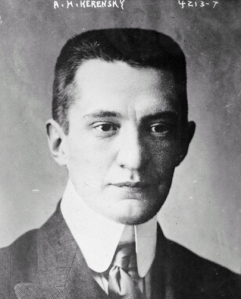The Seven Words That Changed My Life
Join now! Find details about this free E-course at Lesson 1.
How to Write Poetry and Live Poetically
Free E-Course Lesson 2. Preface (part 2)
 April 1991. I want to be anywhere but indoors. A light rain has rinsed the dust off the creosote bushes, leaving that fresh, ephemeral scent of just-washed desert foliage that you absolutely cannot describe but that makes you feel earthy somehow. By dusk, the whole world smells of Mock-orange in bloom. Nothing can compete — rose or jasmine, diesel fumes, steaks cooking over mesquite — nothing brings on spring fever like the Mock-orange at the height of its blooming glory.
April 1991. I want to be anywhere but indoors. A light rain has rinsed the dust off the creosote bushes, leaving that fresh, ephemeral scent of just-washed desert foliage that you absolutely cannot describe but that makes you feel earthy somehow. By dusk, the whole world smells of Mock-orange in bloom. Nothing can compete — rose or jasmine, diesel fumes, steaks cooking over mesquite — nothing brings on spring fever like the Mock-orange at the height of its blooming glory.
Tonight I must forgo my small luxuries: watching the sun set over the mountains, imbibing Mock-orange fragrance and a margarita on the rocks with a solid inch of salt. I have a class to go to. Nor am I drawn to this class by a Hunger for Learning but rather by the need to fulfill a continuing-ed requirement.
I take a last, longing look at the Tucson Mountains to the west — always purple and mysterious when the sun sets, as if somewhere in those backlit hills the Elves’ Masquerade is about to start and you’re invited, if you can find the spot — before I lock my car and enter the windowless building, following the unmistakable pre-evening-class buzz of desultory conversation and languid laughter.
There isn’t a soul I recognize in the large, drab room, which is packed to capacity with bodies steaming slightly from the unseasonably humid warmth of the April night. Tables and chairs are nowhere to be seen, so when the instructor calls us to attention we just plop down on the carpeted floor.
The instructor, whose name is Sheila, is blond, young, compact, and soft-spoken. Her confident, intelligent energy captures my attention as she works her way back to my corner of the room handing out single sheets of paper.
In the years to come I will wish I had kept that paper, though it contains only four or five lines of instructions for our first “exercise.” With little introduction and no fanfare, Sheila explains what we are to do, summarizing the written instructions.
First, we have to “find a partner — someone you’ve never met before tonight.” I am chatting with a woman named Pat, and we give each other that raised-eyebrow “might as well” look that seals our common destiny for the next hour or so.
Normally the words “find a partner” unleash all my latent insecurities. I am back in third-grade gym class trying to be invisible rather than unchosen. To this day I am good-humored and gregarious until an authority figure says “find a partner.” Instantly my hair turns into hideous, writhing spines, the freckles on my nose into warts. My breath is redolent with every onion I have ever eaten. Small spots on my clothes spread and merge into one giant puke stain. Suddenly I need something out of my purse — something small and hard to find, maybe a Chiclet, a nitroglycerine tablet, a microdot — something buried so deep I have to submerge my head and torso to find it.
Tonight I have dodged the find-a-partner bullet. I can relax. Which happens to be the next instruction — to relax, via a mercifully no-nonsense meditation led by Sheila. I’ve undergone guided meditations so drawn out it would have been more efficient to go to the actual ocean and be calmed by the lapping of the actual waves. These exercises were generally led by women with low, crooning, hypnotic voices.
Sheila is no crooner. Her voice doesn’t go all soft and mystical (like Galadriel’s, you know, in The Lord of the Rings, when she is mesmerized by the One Ring that Frodo carries, right before she lights up like Las Vegas and morphs into Oz-the-Great-and-Terrible on steroids). Sheila suggests, in her cheery everyday voice, that we lean back and get comfortable, before she remembers that we are sitting on the floor with nothing to lean back on.
“Okay,” she amends, “just get as comfortable as you can. Relax your shoulders.” We do a few neck stretches, close our eyes, breathe deeply and rhythmically for about thirty seconds, and ultimately achieve a state of relaxation that is about what you’d expect in a room full of sweaty strangers sitting on the floor in business attire.
Seven words with the force of a Light Saber
It is time to begin the exercise. Here’s what’s supposed to happen: One of us (Student A) is to hold in her mind an image of a person she knows. My partner, Pat, has volunteered to be Student A. She is allowed to tell me only three things about “her person”: gender, age, and location. Pat’s person is a forty-two-year-old man in Tucson.
My job (as Student B) is to describe that person — through, I am guessing, some kind of mystical connection Pat and I have formed by sitting a few inches apart and being in a receptive state of deep relaxation. I am supposed to divine his appearance, his surroundings, his appurtenances, whatever occurs to me.
“You’ll feel like you’re making it up,” Sheila cautions. “Don’t wait for a flash of inspiration. Just say whatever comes into your mind. What’s the worst thing that can happen? You’ll be wrong. You’ll get over it.”
You’ll feel like you’re making it up. Seven words with the force of a Light Saber. One sentence to validate a lifetime of intuition.
The man with two red dogs
According to the rules, Pat can ask me only “neutral” questions (“Where is he standing?” “What do you see behind him?” “Is there anything next to him? What is it?”) and affirm or negate my statements. She can’t say stuff like “No, but that’s close” or “You’re getting warmer.” She can’t ask leading questions, either (“So, is he sitting in the white gazebo, or is he cleaning out the garage?”).
I take a deep breath, try to locate my Third Eye, feel a small flutter of anxiety, and then plunge in… and nail it, right from the get-go. Pat’s “forty-two-year-old man in Tucson” is unusually fair-skinned, I announce with authority, about five-foot-ten, has very dark hair but not much of it; he is bald on top, but not on the sides or in back. A thin strip of shiny baldness is covered with, oh, nine or ten strands of dark hair — a comb-over, but a tasteful one as comb-overs go.
I glance at Pat for verification, but I don’t really need it; I can see the guy. She asks where he is, what his surroundings are. I tell her that he is standing in front of a house in the foothills, a long, low, dark-green house that faces north toward the Catalina Mountains. He is beside the front door, a few feet from a curved gravel driveway lined with barrel cacti. He looks serious and intense — like a person who spends most of his time solving important equations in order to pinpoint the precise moment of the Big Bang. I chatter on, now almost oblivious to Pat until, out of the corner of my eye, I see that her face has gone three or four shades paler, a common side effect of forgetting to breathe.
“Do you see anything else?” she whispers.
“Dogs,” I answer promptly. “Two dogs. Two red dogs.”
I have unerringly and meticulously described Pat’s ex-husband, his hair, his house, his two Irish setters, even his profession. It occurs to me that she might be knocking on his door later that evening, asking if she can count the hairs in his comb-over.
Ð
The room goes from quiet to unruly as if someone has rung the dismissal bell. Everybody starts talking at once in giddy, high-pitched voices that remind me of the girls’ bathroom at Central High School on the day of the prom.
Gone are the glazed eyes, the jaded expressions and work-weary faces I saw when I entered the class. Now the room is filled with childlike awe and a hundred stories to tell, each more astonishing than the one before. A man called Biff has apparently decided he’s some kind of sorcerer. As Student B, he explains, he described his partner’s (Student A’s) father’s Indiana farmhouse so precisely that he “saw” the weathered pine step—a replacement that never got painted—on the white stairway leading from the back porch to the “truck garden.”
The stories keep coming. Sheila is impressed, in her low-key way, but hardly overwhelmed, as the rest of us are. Apparently this stuff happens all the time in her classes.
“You’re not ‘mind-reading,’” she tells us. “You’ve just dipped your toes into what is sometimes called ‘shared consciousness.’ The only purpose of this exercise is for you to see how much power you have that you didn’t know you had.” Then she starts handing out a syllabus about the difference between Management and Leadership.
Rats. I have been hoping for more adventures in the paranormal. We all have. If Sheila were to announce, “Okay, now we’re going to levitate naked,” everybody would say, “Oh, boy! Yeah, let’s levitate,” and start throwing off their business attire.
Someone, probably being whimsical but also not wanting the magic to end, starts to sing: “I am woman, hear me roar / In numbers too big to ignore…” and the rest of the class joins in, the men as heartily as the women.
Ð
When amazing things happen in my life, the more time passes the more unreal they seem, until I wonder if I dreamed them. Like when I escorted Alexander Kerensky (who overthrew Czar Nicholas in 1917) from his residence across the street to my college dorm, holding my umbrella over his head so he wouldn’t get soaked; like when I learned that the man sitting next to me at dinner was the composer Aaron Copland and I tried to sing the soprano part to his song “Las Agachadas” with a mouth full of broccoli; like when I shared an elevator with Margaret Truman, or when, early in Ravi Shankar’s career, I went to see him “in concert” in a dorm lounge with about ten other people…. I’ll be telling one of those stories and I’ll think, “Did I make that up?”
But I’ve never for a minute doubted what happened in that classroom full of novice swimmers in the Great Sea of Cosmic Awareness — that was the genuine article. That was the real deal.
——–



Recent Comments